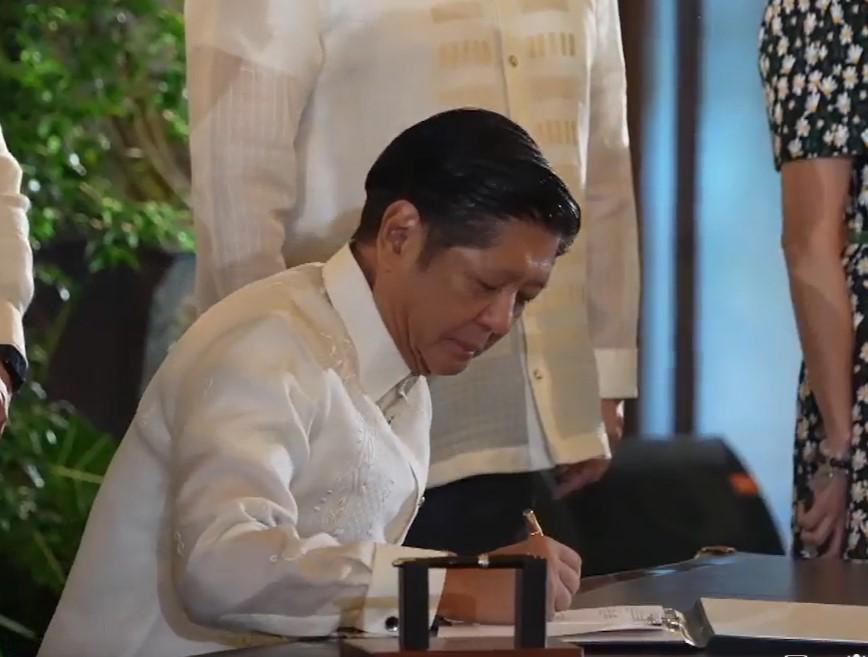Marcos inks ARAL Law to address learning gaps

President Ferdinand “Bongbong” Marcos Jr. signed into law the Academic Recovery and Accessible Learning (ARAL) with the aim to address learning gaps brought by the pandemic.
The signing ceremony took place at the Malacañang Palace on Friday.
''With the signing of the ARAL law, we embark on a definitive journey to champion the right of every Filipino child to quality education—ensuring as well that it is accessible to all,'' Marcos said.
''At the heart of this law lies a steadfast commitment to a free and effective learning intervention for our learners from Kindergarten to Grade 10 within our public education system,'' he added.
The ARAL Law, a priority measure identified by the Legislative-Executive Development Advisory Council (LEDAC), seeks to create a national learning intervention program that is designed to help struggling learners catch up with the required standards for their grade levels.
The ARAL Program applies to K to 10 learners, particularly the following:
- Those who have returned or are returning to school after a furlough;
- Those who are below the minimum proficiency levels in reading, mathematics, and science: and
- Those who are failing in exams and tests based on teacher evaluations during the school year.
The signing ceremony was witnessed by Senate President Francis “Chiz” Escudero, House Speaker Ferdinand Martin Romualdez, Education Secretary Sonny Angara, Senator Sherwin Gatchalian, and Pasig Representative Roman Romulo as well as other members of the Congress and officials of Department of Education (DepEd).
Angara praised the passage of the law, saying that “it is a critical intervention at a time when education needs the most support.”
"This law demonstrates our collective resolve to uplift the state of education in the Philippines. With ARAL, we can help students regain their momentum and achieve the learning milestones they deserve,” Angara said.
The ARAL Program is a free national learning intervention project that will tap teachers and para-teachers as well as pre-service teacher or those students enrolled in a teacher degree program offered by Teacher Education Institutions.
The program will focus on improving the students’ competencies in essential learning areas, including reading and mathematics for Grades 1 to 10, and science for Grades 3 to 10.
When it comes to kindergarten learners, the ARAL Program will focus on building foundational skills to strengthen their literacy and numeracy competencies.
Subsidized data plans
Marcos said the government would also engage public telecommunications entities to collaborate by providing free access to DepEd-exclusive learning management systems.
''These will encompass a multitude of tools—from web-based applications and online educational platforms, to digital libraries and other knowledge hubs—fostering continuous learning for both students and educators,'' Marcos said.
The law will also provide subsidized data plans to facilitate access to the resources required for academic success, according to Marcos.
''Moreover, a portion of the mandated allotment in each broadcasting network’s daily total airtime will now be utilized for supplemental tutorial videos on essential learning competencies, as part of their duty to serve the public good,'' he said.
Under the new law, the DepEd is tasked to coordinate with the Commission on Higher Education, Technical Education and Skills Development Authority, the Department of Information and Communications Technology, the Department of the Interior and Local Government and other stakeholders for its implementation.
Senate Committee on Basic Education chair Sherwin Gatchalian sponsored Senate Bill No. 1604 of which he and then Senator Angara were authors. In the House of Representatives, Pasig Representative Roman Romulo authored House Bill 8210. — RSJ, GMA Integrated News




